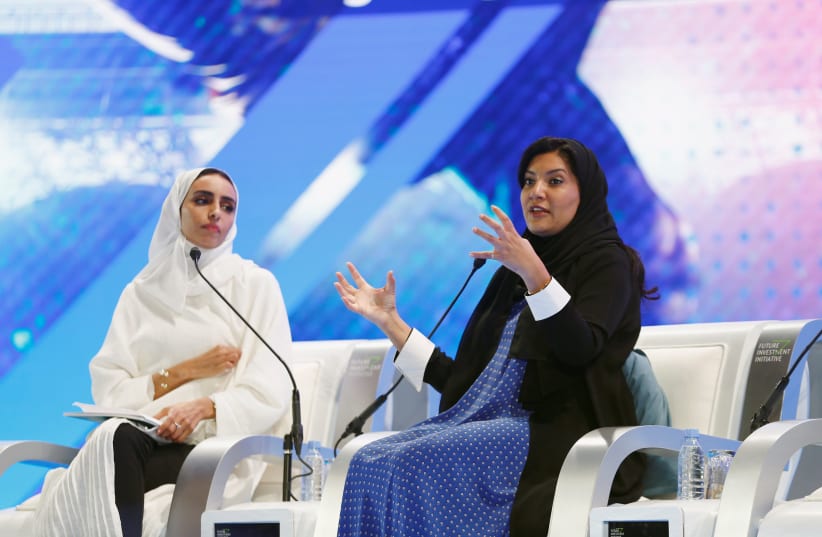United Arab Emirates Foreign Minister Abdullah bin-Zayed al-Nahyan also wrote a “Shana Tovah” greeting on Twitter.לראשונה: שגרירות ערב הסעודית בוושינגטון שיגרה מסר של שנה טובה ליהודי ארה"ב. בהודעה שנשלחה נכתב כי השגרירה הטרייה, שמונתה רק לאחרונה, שולחת איחולים "לשנה טובה ומתוקה"@AmichaiStein1 pic.twitter.com/3SYLhTYsWZ
— כאן חדשות (@kann_news) October 2, 2019
An aid to Iranian president Hassan Rouhani also wished Jews a happy a new year.Shana Tovah
— عبدالله بن زايد (@ABZayed) September 29, 2019
The three examples are small signs of increasing willingness of countries in the Middle East to express tolerance and openness to Jews. This is interesting, considering the fact that Jews lived in most modern Middle Eastern countries since before their current foundations and have roots in the region going back thousands of years. However many of the modern countries in the region have had varying degrees of official state anti-semitism expressed either in textbooks or through obsession with destroying Israel, often thinly veiled behind hatred for Jews in general.Because some of the governments in the region linked their hatred for Israel with a loathing, suspicion and persecution of their own Jewish minorities they chose to forego any expression of respect for the Jewish religion. Now things are changing, just a bit. With a new chapter being written in Israel-Gulf relations, the first steps can be seen in respect for Jews in general, including discussions with openly Jewish delegations, rabbis or groups, and discussions about having a synagogue or two here and there. Much of this is still a sensitive issue, and in general while there have been overtures to Jewish communities, and outreach in places like Bahrain, Dubai, Qatar, and the Kurdistan region of northern Iraq, there is still much work to do.Iran’s regime, for instance, has sometimes tried to use the Jewish minority to burnish its credentials for tolerance, arguing that its obsession with attacking and destroying Israel is not a manifestation of antisemitism. This year the Shanah Tovah greeting from Iran’s foreign ministry was still wrapped up in an Islamic context, “happy new year to our Jewish compatriots ad all true followers of the great prophet Moses (peace be upon him).” Iranian Foreign Minister Javad Zarif wrote a Rosh HaShanah greeting last year, but he didn’t mention it this year. The happy new year greetings came as the Islamic Revolutionary Guard Corps leader Hossein Salami gave a speech suggesting the destruction of Israel and Qassem Soleimani gave an interview celebrating the 2006 war in Lebanon against Israel.The Jewish holidays are often ignored by European missions throughout the Middle East, even if there are Jews in the local country, in contrast to other holidays. There are exceptions. The UK embassy in Bahrain wished Jews a “very happy and blessed new year.”#Iran's President's Special Aide on Ethnic & Religious Minorities Ali Younesi has offered a #ShanahTovah to #Jews of #Iran. In the past, Younesi, a former intelligence minister, also visited a synagogue in #Shiraz. https://t.co/v93Y4uZy62
— Jason Brodsky (@JasonMBrodsky) September 30, 2019
That seemed to a lone UK voice in the region, there was no similar greeting from the UK consulate in Jerusalem, Jordan or elsewhere, except the UK embassy in Tel Aviv. Despite thousands of years of Jewish presence in Jerusalem, countries like the UK generally wish people Merry Christmas and a happy Eid from their consulate Jerusalem.Wishing everyone celebrating Rosh Hashanah a very happy and blessed new year #roshhashana #freedomofreligion pic.twitter.com/hSKXByMV2Y
— UKinBahrain (@UKinBahrain) September 29, 2019
